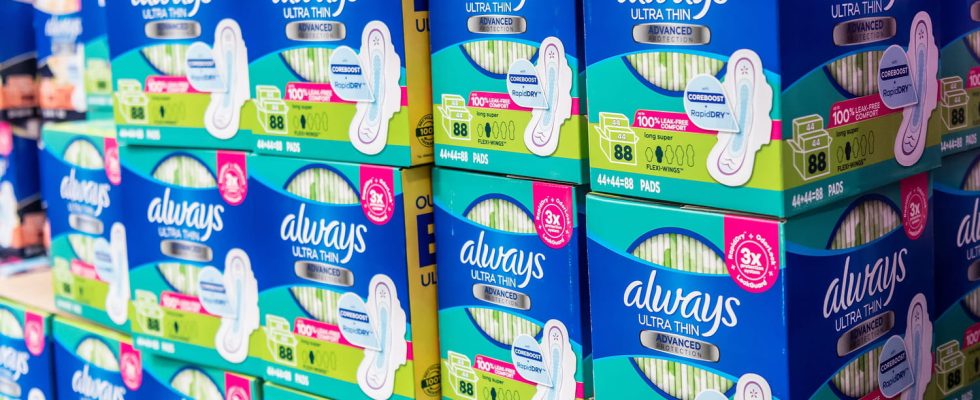A woman uses between 6,000 and 13,000 disposable intimate protection products during her lifetime.
It has been a hot topic for several years: composition feminine hygiene products and risks that they can cause for health. Relying on the scientific opinions of the National Agency for National Food Safety (ANSES), a decree will come into force on April 1, 2024 for better information on these intimate protection products. This decree sets new obligations to be included on their packaging and instructions for use: “Information on the composition and good practices for using intimate protection products, both internal and external, is essential for preventing the risk of toxic shock syndrome” indicates the DGCCRF (Directorate General for Competition, Consumption and Fraud Repression) in a press release published on March 8.
What is changing?
From April 1, manufacturers and those responsible for placing them on the market must mention on the labeling and/or instructions for use of tampons, napkins, panty liners, menstrual pantiesmenstrual cups and menstrual sponges, three categories of information following:
- The list of components and for each of them, the detail of substances and materials incorporated
- The mention of the terms and precautions of use (hygiene, maximum wearing time…)
- The possibilities adverse effects (irritation, intolerance, allergies, microtrauma) or more serious effects such as menstrual toxic shock syndrome
Until now, this information was not mandatory and therefore not systematically displayed on these products. From now on, women will have to pay particular attention to this in order to protect themselves as much as possible from the risk of complications linked to the misuse of their hygienic protection, in particular toxic shock. Evaluated by Inserm at around a hundred cases per yearthis syndrome is mainly caused byuse of periodic protection internal, namely tampons and menstrual cups. It is caused by the release into the blood of a bacterial toxin. The syndrome causes high feversymptoms like flu or even one rash can go up to organ failure. In the most severe cases, complications can lead toamputationeven the death.
The decree also provides for the provision of prevention information in the event of Distance Selling or unit distribution for example on dispensers in toilets or during donations. Despite the entry into force on April 1, a delay ofstock flow already placed on the market has been authorized until December 31, 2024. The DGCCRF will remain vigilant on the application of this decree, through regular checks product compositions and compliance of information on packaging. THE consumers are invited to report on the site or application SignalConso any consumer problem, particularly related to the display of information on intimate protection products.
